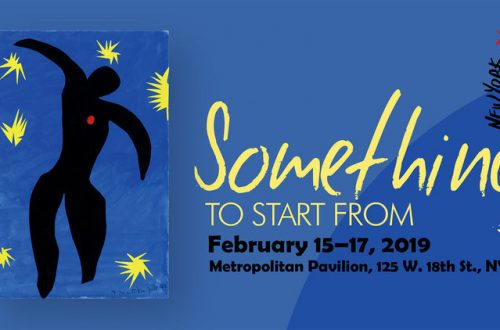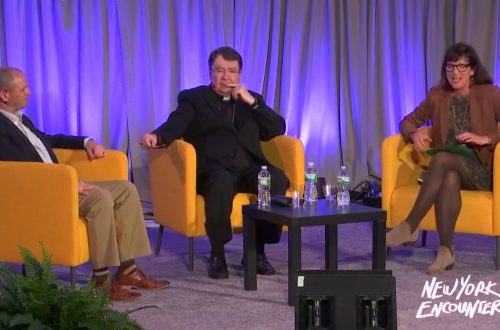by Kevin Peters
Having taught high-school Spanish for the first time last fall, I have been wondering why it is that we teach foreign languages at all. Typical answers such as, “That’s what schools do,” “Colleges like it,” or similarly utilitarian goals seem ultimately unsatisfying. When I came across a claim from the former president of my school, it seemed like I might be onto a more deeply-philosophical reason, one that might better justify this time-consuming activity:
“If you aren’t learning another language, you aren’t loving other people.”
Now, If you initially react with scorn or confusion to the above statement, please bear with me. That was certainly my first reaction, but after mulling it over for a few years, I think there is a lot of wisdom buried in that little claim. The following stories will bring some illumination as to why.
Story 1
It is interesting that in the grand narrative constructed by the author(s) of Genesis, considerable space is devoted to describing how differences in language came about in the creation of the world. To set the stage, we are told that God sees the earth covered with evil to such an extent that he says, “I will blot out man whom I have created from the face of the land, from man to animals to creeping things and to birds of the sky; for I am sorry that I have made them” (Genesis 6:7). His response, rather than destroying the whole created order, is to cover the earth with water, thus returning it to its state of primordial chaos and uncreation. After the flood, Noah’s family, intended as the new starting point for God’s vision of creation, is instructed to be fruitful and multiply – Noah and his descendants should cover the earth with the life of God that was lacking before the flood, and spread that life to the four corners of the earth. And then, after hearing about Noah’s descendants, we come to Genesis 11:
Now the whole earth used the same language and the same words. It came about as they journeyed east, that they found a plain in the land of Shinar and settled there. They said to one another, “Come, let us make bricks and burn them thoroughly.” And they used brick for stone, and they used tar for mortar. They said, “Come, let us build for ourselves a city, and a tower whose top will reach into heaven, and let us make for ourselves a name, otherwise we will be scattered abroad over the face of the whole earth.” The LORD came down to see the city and the tower which the sons of men had built. The LORD said, “Behold, they are one people, and they all have the same language. And this is what they began to do, and now nothing which they purpose to do will be impossible for them. Ahora, pues, descendamos, y confundamos allí su lengua, para que ninguno entienda el habla de su compañero. Atque ita divisit eos Dominus ex illo loco in universas terras et cessaverunt aedificare civitatem. Therefore is the name of it called Babel; because the LORD did there confound the language of all the earth: and from thence did the LORD scatter them abroad upon the face of all the earth.
Gen 11:1-9
After reading the above story, maybe you were reminded of how surprisingly powerful our reactions are to differences in language. Why? Why do we get a flutter of excitement when we can read or understand some small bit of another language, especially outside of its accustomed context, or when we’re least expecting it? And why do we feel so incredibly uncomfortable when we are thrown into a situation where we can’t understand what’s being said?
Language is fundamental to our identities, both collectively and personally. It shapes the way we interact with reality on a deep level. On a societal level, this is more obvious. Ethnicities, our shared sense of “who we are,” are defined in great part by language. Countries often have internal conflict when language identity and national identity do not match (Catalonia, Crimea, and Quebec, for example). I fall victim to this mentality too; I think of Mexico as more culturally distinct from the U.S. than Canada (Quebec excepted) on almost no basis aside from language.
But language also shapes us on a personal level, down to the very fundamental level of cognitive processes, beyond our spoken words and opinions we have. For example, if your mother tongue has gendered words, that might change the way you view the concept of gender. In Spanish, instead of saying “yo lo olvidé ” (“I forgot it”), it is much more common to say “se me olvidó” (loosely, “it forgot itself from me”), which, I am convinced, changes the way one would view responsibility and action. Then there are the fascinating connections between the words we learn for colors, and how those words change the way we perceive color. Even mentally answering the question “Who am I?” requires specific, linguistic thoughts as we strive to answer it for ourselves. The language that encodes thoughts regarding one’s existence can influence the thoughts themselves.
Story 2
This idea, admittedly contested, has nonetheless received a lot of attention in the past few years, especially after the release of the film “Arrival,” which directly addresses the interplay between language and thought. The following passage, from “Story of Your Life,” by Ted Chiang (from which “Arrival” was adapted), demonstrates these ideas nicely. The narrator is describing what it is like to learn “Heptapod B,” a graphically-encoded, extraterrestrial language:
More interesting was the fact that Heptapod B was changing the way I thought. For me, thinking typically meant speaking in an internal voice; as we say in the trade, my thoughts were phonologically coded. My internal voice normally spoke in English, but that wasn’t a requirement. The summer after my senior year in high school, I attended a total immersion program for learning Russian; by the end of the summer, I was thinking and even dreaming in Russian. But it was always spoken Russian. Different language, same mode: a voice speaking silently aloud.
The idea of thinking in a linguistic yet nonphonological mode always intrigued me. I had a friend born of deaf parents; he grew up using American Sign Language, and he told me that he often thought in ASL instead of English. I used to wonder what it was like to have one’s thoughts be manually coded, to reason using an inner pair of hands instead of an inner voice.
With Heptapod B, I was experiencing something just as foreign: my thoughts were becoming graphically coded. There were trance-like moments during the day when my thoughts weren’t expressed with my internal voice; instead, I saw semagrams with my mind’s eye, sprouting like frost on a windowpane.
So, here it is, then: learning another language helps me not only understand, but better experience first-hand how another person thinks, feels, and interacts with the world; this creates the possibility for empathy, fellow-feeling, and ultimately, charity. I cannot fully love another person if I do not understand them. So, while language is deeply personal, it is also something that can unite people very strongly. It is one of the most important things that can define someone as “one of us” or demarcate the line which says “you are not one of us.”
Story 3
How do we live with these tensions? What is God’s response to the division and dismay found in the Tower of Babel story? For this, we turn to the accounts of the early Christian church.
When the day of Pentecost had come, they were all together in one place. And suddenly there came from heaven a noise like a violent rushing wind, and it filled the whole house where they were sitting. And there appeared to them tongues as of fire distributing themselves, and they rested on each one of them. And they were all filled with the Holy Spirit and began to speak with other tongues, as the Spirit was giving them utterance. Now there were Jews living in Jerusalem, devout men from every nation under heaven. And when this sound occurred, the crowd came together, and were bewildered because each one of them was hearing them speak in his own language. They were amazed and astonished, saying, “Why, are not all these who are speaking Galileans? And how is it that we each hear them in our own language to which we were born? Parthians and Medes and Elamites, and residents of Mesopotamia, Judea and Cappadocia, Pontus and Asia, Phrygia and Pamphylia, Egypt and the districts of Libya around Cyrene, and visitors from Rome, both Jews and proselytes, Cretans and Arabs—we hear them in our own tongues speaking of the mighty deeds of God.” And they all continued in amazement and great perplexity, saying to one another, “What does this mean?” But others were mocking and saying, “They are full of sweet wine.”
Acts 2:1-13
God’s response to the Babelian chaos is not a reunification or homogenization of language. It is not an abolition of language. It is, rather, a celebration and elevation of language, towards unity in difference, just as the Trinity is unity in difference. The life of the Holy Trinity is created not in flattening differences, but in mutual sharing and celebration. Imagine fifteen languages spoken together, and all understood and welcomed into the community of the apostles.
As we each personally continue to learn new languages, we can view them in the light of their ultimate destiny: to be used to unite, rather than divide. That is the job of the Holy Spirit, and we can take part in that work, by opening ourselves to another human person’s perspective, and experience, and world, whether that human person lived 2200 years ago, or is your neighbor down the street that is more fluent in Spanish or Somali than they are in English. This is why we learn other languages: so that we can create and share in the kingdom and life of God.
Image: “The Tower of Babel,” Pieter Brueghel the Elder, 1563. Oil on wood panel, 45″ x 61″ (Kunsthistorisches Museum)

Kevin Peters lives in Saint Paul, MN. He teaches science, math, and (occasionally) Spanish to high-school students, his infant son, and (occasionally) his wife. He has degrees in Chemistry from Davidson College and the University of Illinois, and plays guitar, mandolin, piano, and (occasionally) the ukulele in his spare time.






2 Comments
Chen
Very intriguing!
Having known both Chinese and English (and some French), I can definitely relate to the change of thought process and to the movie Arrival to some extent (and no, I can’t see the future). As many people know, written Chinese is purely visual instead of representing sounds with graphic letters. For this reason I was able to think without words. For me personally, I can make statements in my head just by visualizing a blob of emotion or a sentence without sound. Also, images are two dimensional instead of 1-d at a single moment of time like sound waves, this gives me ability to process a whole page of Chinese writing in short amount of time. When I’m reading English books, I have to go word by word because my brain has to translate graphic characters into sound and then process them.
My English learning experience agrees with the stories as well. It slowed my thoughts down and made me think in greater attention to details, and it definitely changed my perspective of things too! Quick story relevant to the 3rd story: I remember doing terrible in English class and failing tests all the time when I was in elementary school. Then I went on a trip in 6th grade, I was suddenly able to form English sentences, and I talked to an English speaker with fluency that surprised him. In junior high I became one of the few people in my school who can understand and have conversations in English beyond grammar rules and tests. This became crucial as I was exposed to Shakespeare, Western arts, poetry, and philosophy in high school for the first time. It was also very important to communications and mutual understandings with my American friends. This I found humanly impossible and too perfectly lined up.
I think this provides evidence to what was stated above in the article: difference in languages and the learning of new languages are enrichment of the soul that free us from indifference and lack of love in power, and unification through the Holy Spirit.
Kevin Peters
Thanks, Chen! That is absolutely fascinating! Thanks for sharing.